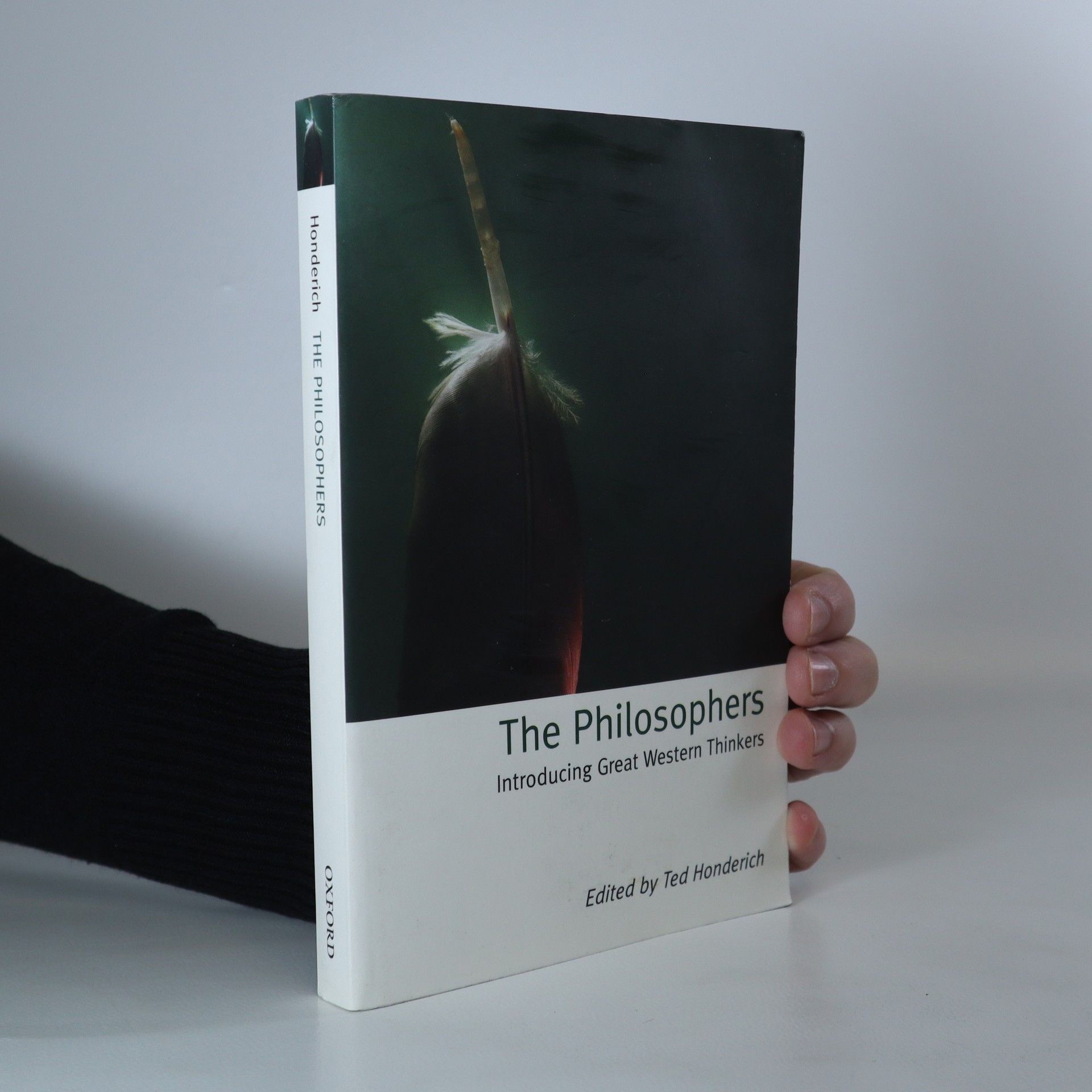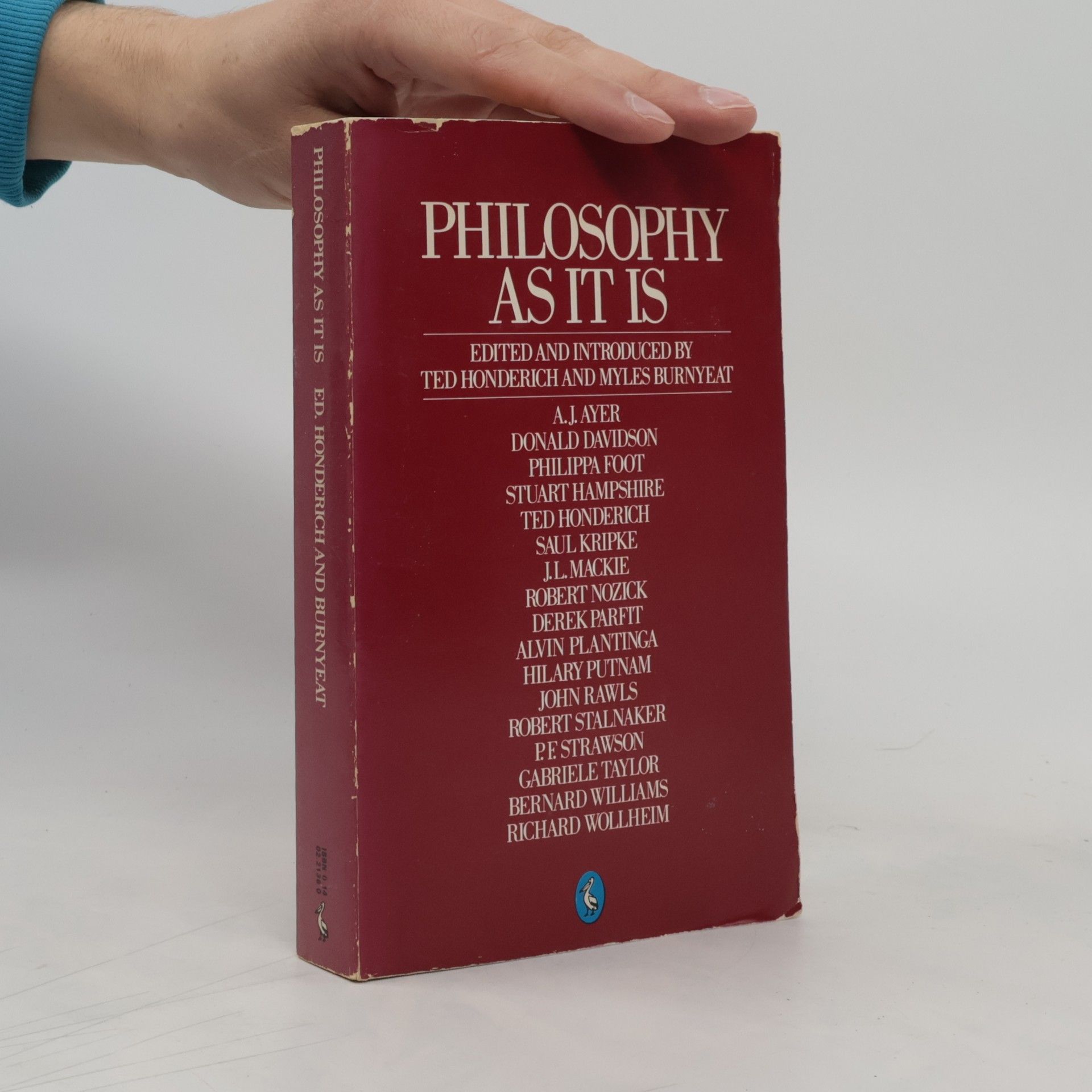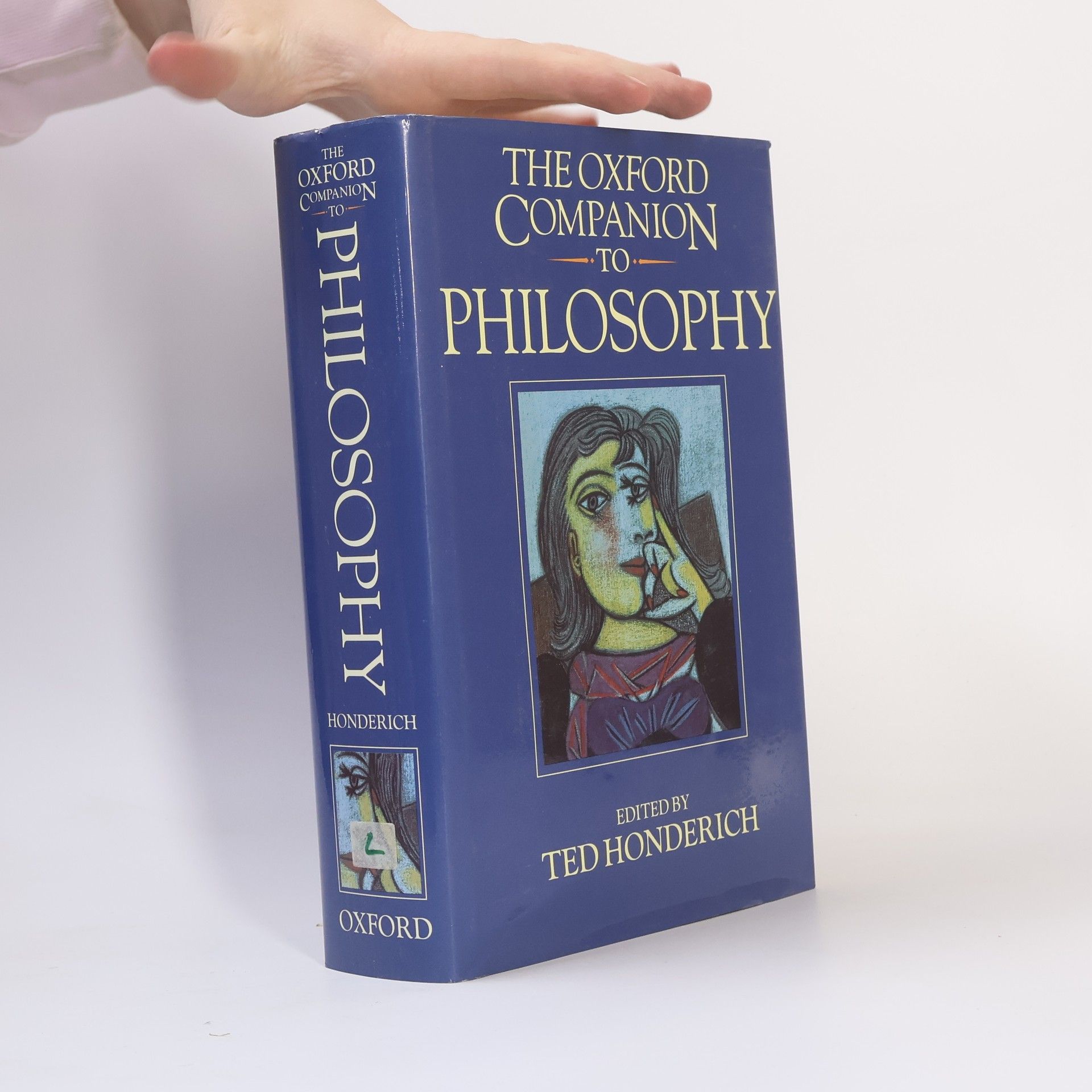Philosophy can be both intriguing and perplexing, addressing fundamental issues of the human condition, such as free will, morality, and the limits of logic. The Oxford Companion to Philosophy serves as an authoritative one-volume reference, offering clear guidance on the ideas of notable philosophers from antiquity to the present, alongside major philosophical systems worldwide, including Confucianism and phenomenology. With over two thousand entries, it covers concepts like idealism, ethics, and existentialism. Esteemed contributors, including Isaiah Berlin and Sissela Bok, provide insights on key figures and doctrines, from Aristotle and Plato to contemporary thinkers like Noam Chomsky. The Companion also features entries on significant concepts such as personal identity and the mind-body problem, as well as contentious issues like abortion and capital punishment. Readers will find explanations of philosophical terms, puzzles, and curiosities, with suggestions for further reading accompanying most entries. Additionally, it includes a chronological chart of philosophical history and portraits of eighty eminent philosophers. The work also touches on lighter aspects of philosophy, making it both informative and enjoyable to browse, serving as an indispensable guide for anyone interested in abstract thought and the foundations of human understanding.
Ted Honderich Boeken





Morality and art - Phillipa FootA critique of utilitarianism - Bernard WilliamsA theory of justice - John RawlsDistributive justice: the entitlement theory - Robert NozickArt as a form of life - Richard WollheimLove - Gabriele TaylorPersonal identity - Derek ParfitMental events - Donald DavidsonOne determinism - Ted HonderichSome difficulties in knowing - Stuart HampshireConstruction of our theory of the physical workd - A.J. AyerThe "corroboration" of theories - Hilary PutnamA conditional analysis of the concept of causation - J.L. MackieGod, possible worlds and the problem of evil - Alvin PlantingsPossible worlds - Robert C. StalmakerIdentity and necessity - Saul KripkeMeaning and truth - P.E. Strawson
The Philosophers
- 304bladzijden
- 11 uur lezen
What better introduction to philosophy than through the lives of its most prominent figures? This work presents twenty-eight of the greatest thinkers in Western civilization, from Aristotle and Plato to Wittgenstein, Heidegger, and Sartre. An esteemed team of scholars leads us on a concise tour of brilliant minds and enduring ideas. Explore Aristotle's Nichomachean Ethics, Plato's cave of shadows, Schopenhauer's vision of reality as blind, striving Will, Hegel's World Spirit, Bentham's Greatest Happiness principle, and Mill's insights on liberty. Delve into William James's stream of consciousness, Husserl's phenomenology, and Kant's categorical imperative, alongside the Christian philosophies of Augustine, Aquinas, and Kierkegaard, as well as the materialism of Hobbes and Marx. Engage with the modern philosophical systems of Bertrand Russell, Jean-Paul Sartre, and Ludwig Wittgenstein. Each article features a portrait of the philosopher and suggestions for further reading, complemented by a chronological table providing historical context. This authoritative guide reveals how these thinkers grappled with central human issues—free will, morality, and the limits of logic—while illuminating their lasting legacy for contemporary thought.
Book by Hamlyn, D. W.
Ein kritisches Brevier des Konservatismus für die Gebildeten unter seinen ironiebegabten Verächtern ..